Top Business Networking Tips for Success
Top Business Networking Tips for Success

Successful networkers know that business networking is all about making personal connections and building relationships. However, the COVID-19 pandemic put a halt on in-person networking events, which had always been the preferred method of building these relationships.
The pandemic has forced people to adapt and adjust in many ways both personally and professionally, including how we network. While networking typically involved in-person events, during the lockdown people needed to leverage other methods of communication like phone calls, social media, and email.
The world is gradually returning to some form of normalcy, but business networking has changed forever. Continue reading to learn more about business networking, how it’s changed in the last few years, and tools and tips for networking success in a post-pandemic world. For a quick summary, jump to our infographic below.
What is business networking?
Business networking is the process of meeting business owners, possible sales leads, potential suppliers, and other professionals to help you grow your business.
Networking is important because it allows you to connect with not only potential customers or clients but also people who can provide referrals or valuable insight and advice specific to your industry.
How business networking has changed
Before the pandemic, traditional ways of networking thrived with face-to-face communication, with 95% of people agreeing that better business relationships were built through face-to-face meetings.
Although many people still plan to host and attend in-person networking events in the future, two years of distancing has presented a slew of new digital networking methods, strategies, and benefits.
A rise in digital networking
While digital networking has been around for a long time, it took off in 2020 when it became the only method for individuals to connect and keep in touch due to restrictions.
During this time, people started leveraging social media platforms such as Facebook, LinkedIn, Twitter, and other networking apps to expand and deepen connections with their business contacts.
Even though in-person networking activities are resuming, 63% of people said they will continue to utilize digital technology more frequently even after the pandemic has passed.
Networks can expand beyond local communities
Virtual networking has, maybe most importantly, broken down numerous geographical barriers and extended opportunities. Networkers are no longer limited to their local breakfast networking groups or happy hour meet-ups.
A study conducted by Forbes found that 76% of business professionals agreed that one of the top benefits of leveraging technology for networking is more flexibility in location and timing.
By leveraging digital networking tools, phone calls, and other telecommunication methods, people are better able to interact with experts in their field from all over the world and have meaningful interactions with them. With the virtual workplace on the rise, organizations can interview, vet, and hire more people from a broader geographic area, helping to diversify their workforce.
You may even be able to obtain a greater pool of referrals if you have a wider network. With referrals accounting for 65% of new business opportunities, organizations can gain more referrals from virtually anywhere in the world.
Social media for business networking
So, in today's world, what are the best tools to network with potential clients, collaborators, and associates? In an ever-changing world, it's critical to understand how to build connections using the most up-to-date and useful technologies — in this case, the internet.
Social media may provide the most flexible networking environment. With fewer distractions, users can easily communicate with individuals one on one. Professionals can send and respond to messages at their convenience. Social media profiles can be updated with information that portrays them in a professional yet genuine light. In fact, 78% of workers who use social media for work-related purposes say that the tool is useful for networking.
Check out some of the top social media platforms to help expand your network.
This may surprise you, but Facebook is indeed a valuable channel for business networking. Using Facebook as a networking tool is a relatively new tactic that many individuals and businesses have adopted.
Facebook is the largest social network in the world with nearly 3 billion monthly active users, with 1.8 billion of them claiming to use Facebook Groups monthly. Businesses may use these opt-in groups to get around Facebook's cutthroat Feed algorithm and engage with audiences that are more likely to view and interact with their content.
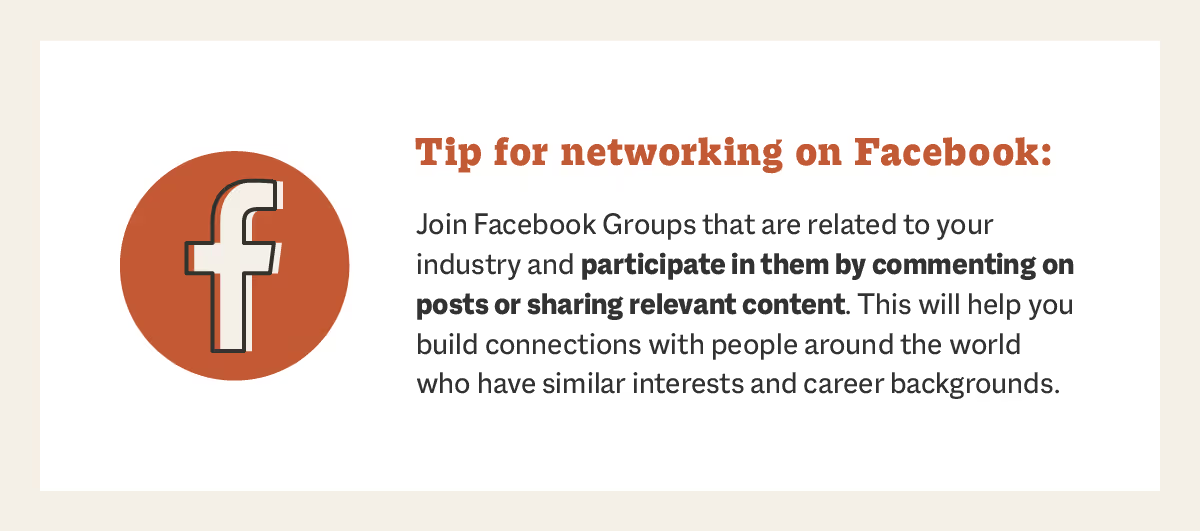
LinkedIn was created for those who want to network but can't always do it face to face. Since then, millions of professionals have benefited greatly from internet networking through LinkedIn.
As of today, over 800 million people are on LinkedIn, making it the go-to social networking site for all business professionals. LinkedIn is primarily used for expanding one's network; therefore, your most desirable connections will be there.
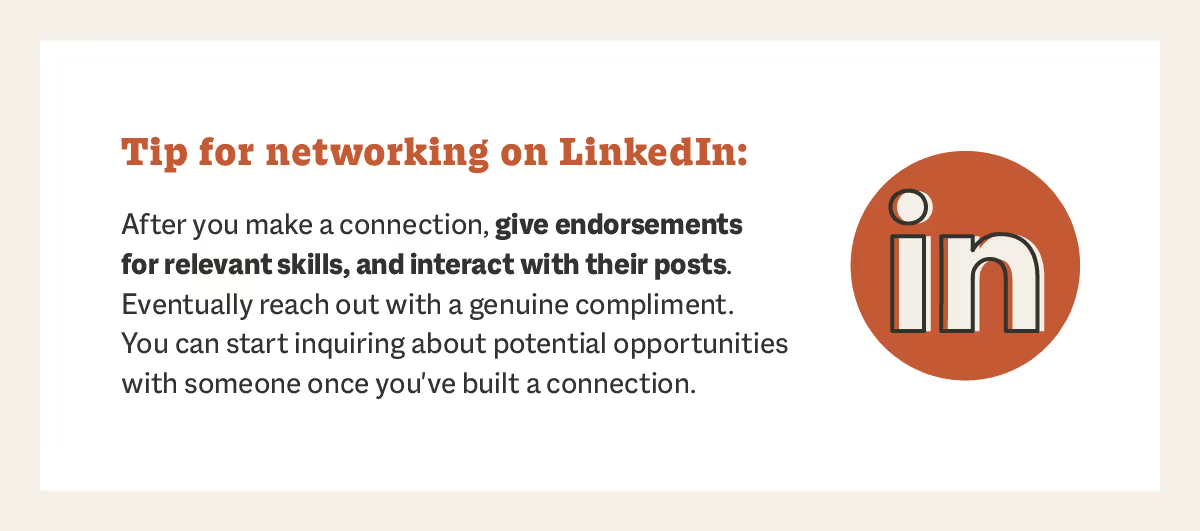
Twitter is another social media platform that is popular amongst networkers. The platform hosts 217 million daily active users and provides the ability to communicate in real time, making it a valuable business networking tool.
Networking on Twitter is effective because it allows you the opportunity to reach out and connect with anyone else who uses the platform, regardless of how successful, famous, or difficult to reach they are in other fields.
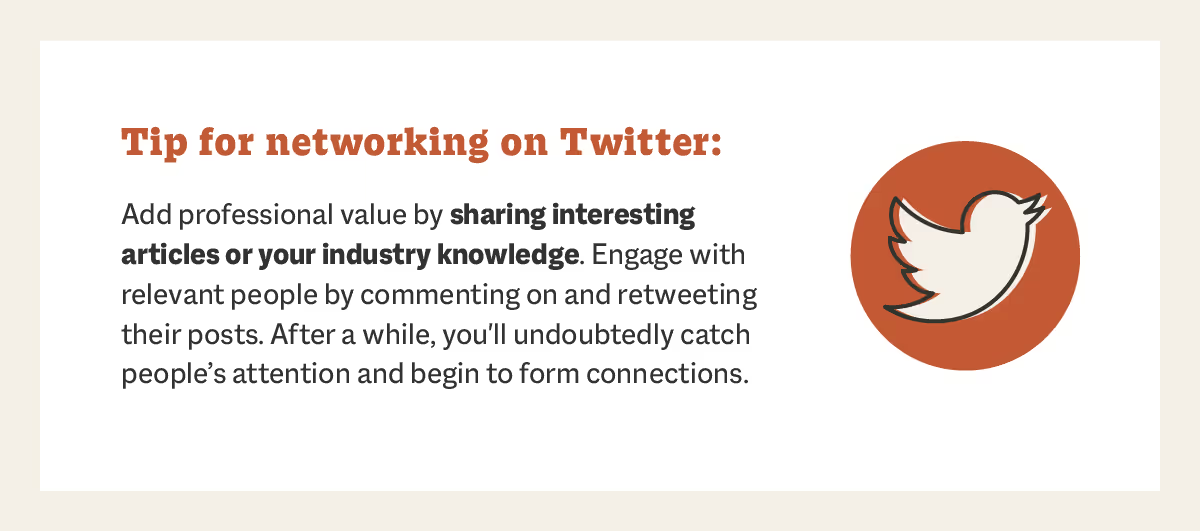
Business networking tips for success
Whether you choose to embrace digital networking or are set on attending in-person events, consider new strategies to create relationships and nurture your network. Use these tips to improve your professional networking skills in the post-pandemic era.
Build meaningful connections
Since networkers are far more selective in who they engage with, the best approach is to consider business networking as a means of establishing genuine relationships based on shared interests, mutual respect, and trust.
Focus on developing a few relationships at a time rather than meeting a large number of individuals. You'll acquire fewer contacts, but the connections you make will be of higher quality and last much longer.
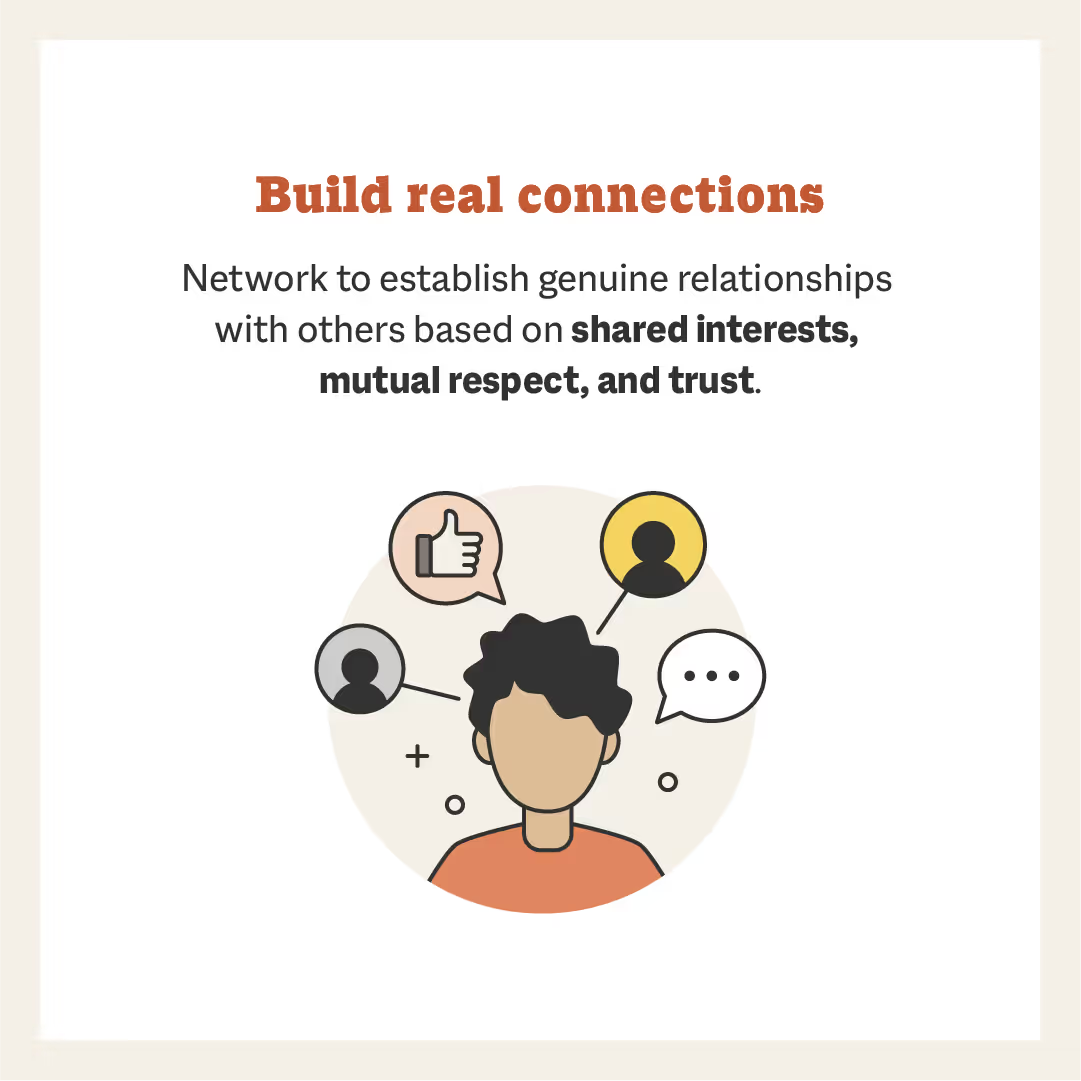
Be an effective communicator
You have two ears and one mouth for a reason. Effective communication is about listening twice as much as you talk. People will want to continue talking to you if you listen to what they have to say and ask the appropriate questions. The more engaging the conversation is, the more likely you are to be successful at networking with that person.
Asking individuals the right questions rather than trying to answer every question asked of you is a good indicator of intelligence. Additionally, increased empathy and courtesy for others’ time play a big role in effective business networking.
Instead of delivering long-winded responses that the other person is unlikely to be interested in, show individuals you are genuinely interested in them and respect their time by keeping your answers short and always bringing the discussion back to them.
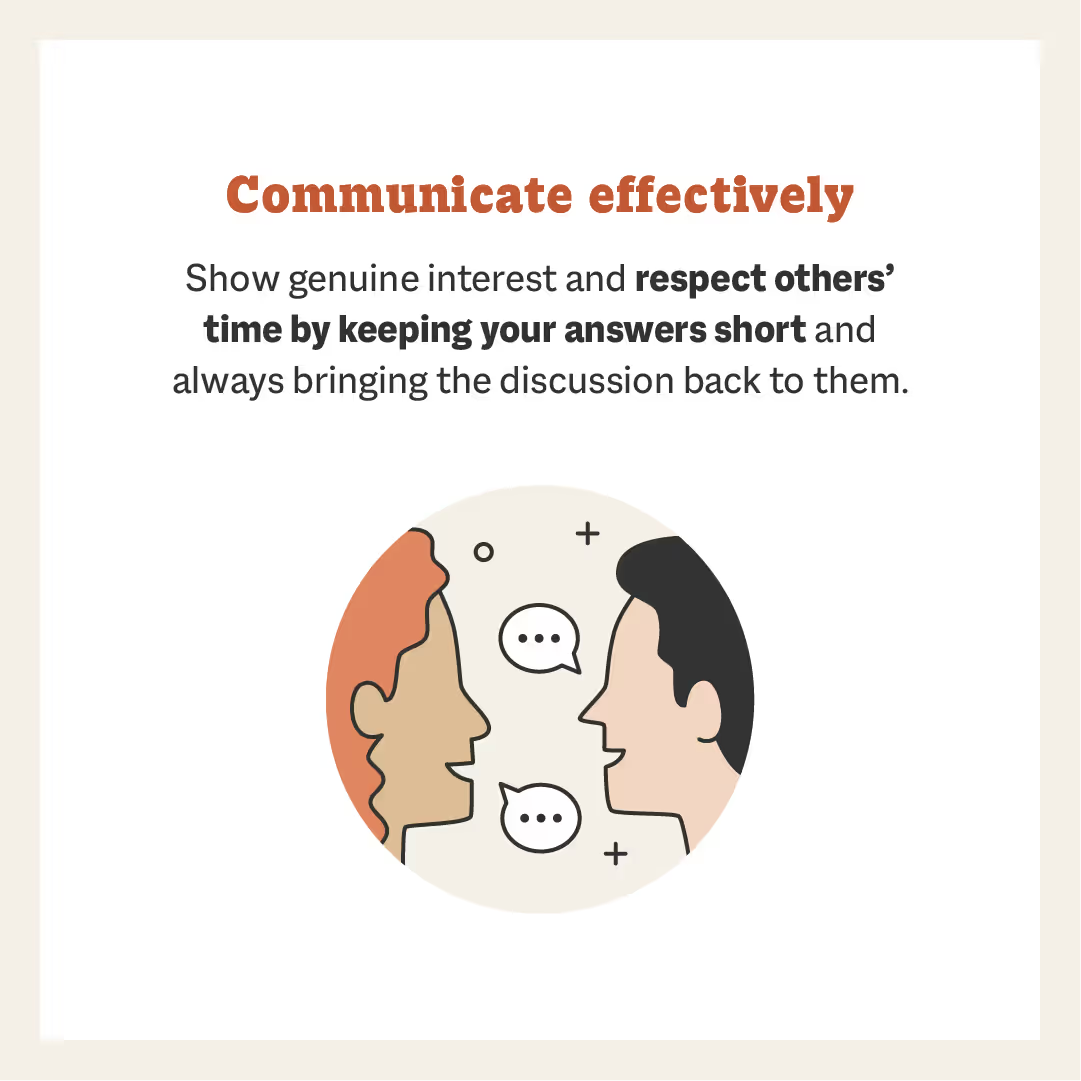
Give before you receive
In a professional networking setting, far too many people jump into sales mode which can come across as forced and insincere. Networking isn’t all about you –– it's about creating connections that are genuine, mutual, and beneficial.
Before asking for any favors, give them something valuable. Giving referrals and business opportunities is significantly more effective than expecting them. You may not receive a favor or referral in return right away, but the kind gesture won’t be forgotten and will eventually return to you.

Differentiate yourself
When it comes to networking, many attempt to be all things to all people, which makes it difficult for them to establish themselves as an expert in their field.
What are your areas of expertise? What distinguishes you from others with similar professional backgrounds? Why should people choose you over the next person to work with? These are the kinds of questions you should be able to answer and show off to others.
It's especially important to stand out in a virtual context because it's easy to blend in with all of the other profiles. Optimize your profiles to highlight your expertise, industry knowledge, and personality, and engage with others’ posts to attract their attention and differentiate yourself.
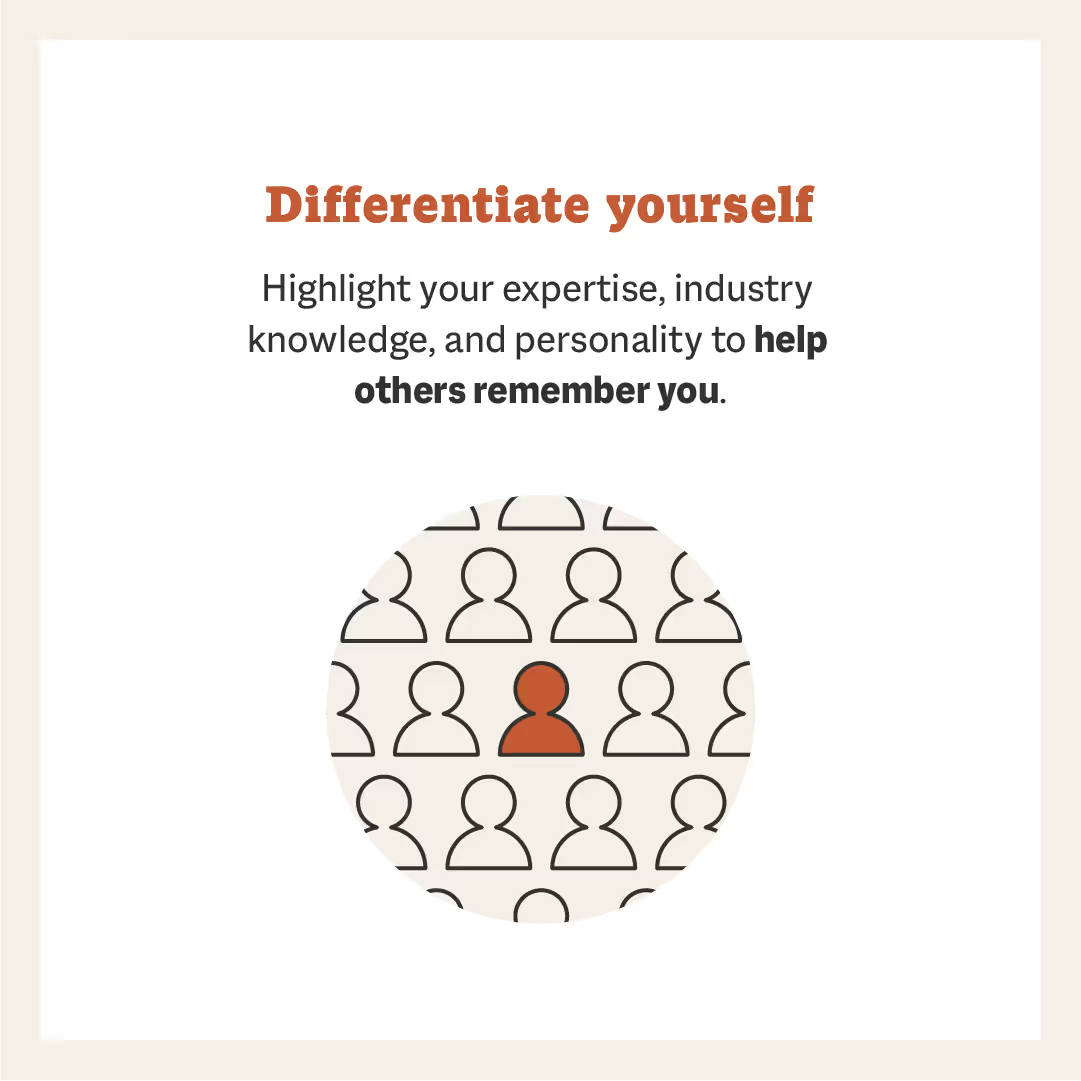
To differentiate yourself even more, don’t be afraid to start your own group. Social media like Facebook Groups is a great way to become an influencer and create a community around your personal posts and engagements.

Despite the fact that business networking has changed dramatically since the COVID-19 pandemic, it is still critical at all phases of a person's career. These tips will help you develop a network of long-term customers, clients, and referral sources based on genuine relationships rather than superficial interactions.
After nurturing these relationships, you’ll be better able to find an opportunity to work with them and convert these relationships into sales, partnerships, or lasting friendships.
Book a free consultation to learn more about how Smith.ai's virtual receptionists can help you nurture your network relationships.
Sources: TechJury | Deloitte | Forbes | ThinkImpact | PewResearch | Data Reportal | Hootsuite | LinkedIn | Omnicore
Take the faster path to growth. Get Smith.ai today.
Key Areas to Explore

Your submission has been received!












%20(1).avif)

.svg)



